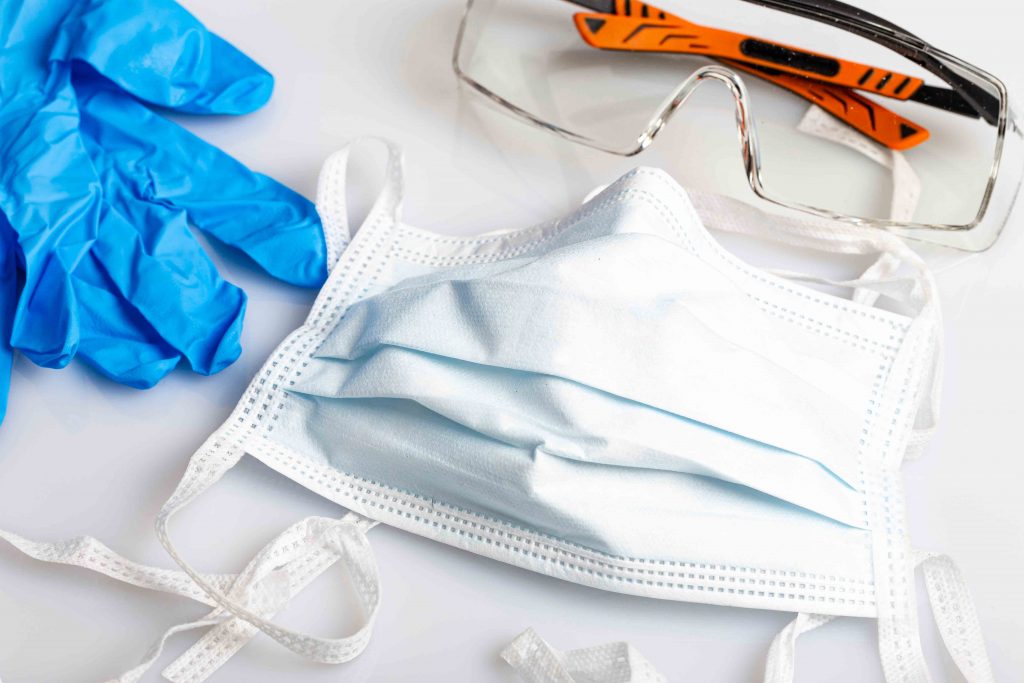COVID-19 has brought with it numerous extraordinary challenges, including an increase in personal protective equipment (PPE) and sanitary supplies such as tissues, hand sanitizer, face masks, and disposable gloves, being thrown into the garbage. As a result, the waste management industry is left with an escalation of potentially infectious waste to deal with.
To make matters worse, conflicting information regarding disposal is leaving many industry workers fearing for their safety while collecting, handling, and processing municipal solid waste (MSW). In fact, reports suggesting that workers at landfill sites are dealing with significant numbers of hospital gowns and other equipment, alongside biohazard bags and even needles, point to serious diversion issues along the chain.
However, direction from the WHO states merely that:
“There is no evidence that direct, unprotected human contact during the handling of health care waste has resulted in the transmission of the COVID-19 virus”
While the Occupational Safety and Health Administration (OSHA) offers that:
“….medical waste with potential or known COVID-19 contamination, manage like any other regulated medical waste. COVID-19 is not a Category A infectious substance,” and that: “workers and employers should manage municipal (e.g., household, business) solid waste with potential or known COVID-19 contamination like any other non-contaminated municipal waste.”
Somewhere between these definitions, however, confusion is leading to hazardous waste making its way into non-hazardous waste streams. Add to this an overburdened industry struggling to keep up with an increase in demand from both the residential and healthcare sectors, and proper disposal of waste is coming sharply into focus.
How the waste management industry is coping
 While much of the waste management industry is trying to operate on a business as usual basis, COVID-19 is ushering in sweeping changes across the US. In this fast-changing landscape, the potential remains for services to be restricted, either through worker sickness or increasingly stringent rules that limit workers’ capacities to deal with waste as efficiently as before the crisis.
While much of the waste management industry is trying to operate on a business as usual basis, COVID-19 is ushering in sweeping changes across the US. In this fast-changing landscape, the potential remains for services to be restricted, either through worker sickness or increasingly stringent rules that limit workers’ capacities to deal with waste as efficiently as before the crisis.
It is possible that new systems will need to be introduced to maintain correct disposal procedures and a reduction in waste across other areas; in particular, those of non-essential healthcare services such as dentists, medical clinics, and other elective procedures may offer some respite. However, as MSW rises significantly, it is unlikely that this will offset the increased demands on the industry.
Effectively and efficiently identifying, sorting, and disposing of both hazardous and non-hazardous waste associated with COVID-19 then, is crucial to ensuring the industry keeps workers safe and maintains the correct disposal procedure.
Tracking and tracing waste
Technology plays a pivotal role in ensuring that infectious or potentially hazardous waste is sent to the correct facilities so it can be rendered safe and disposed of correctly. To aid this, increasing transparency using GPS, RFID, and comprehensive barcoding will allow manufacturers to tag supplies, hospitals to “check out” waste, haulers to register its arrival at the correct facility, and facilities to confirm its destruction—essentially tracing the entire lifecycle of infectious waste from cradle-to-grave.
Implementing and improving these technologies is vital, helping to prevent further spread related to the improper disposal of infectious waste and allowing municipalities to better manage hospitals, clinics, and residential buildings such as care homes. Additionally, further data relating to the number of essential supplies used and disposed of during the crisis may allow more robust stock management plans for the future and allow the government and healthcare sector to be better prepared.
Protecting workers is paramount
Protecting workers from exposure to the virus is crucial to ensure hauler health and that services can run optimally. This is true at all stages of waste management, from collection to processing, with each link in the chain ensuring the safe and appropriate disposal of medical waste, hazardous waste, and municipal solid waste respectively.
Regardless of what existing state guidelines dictate, those on the frontline must always be equipped with the right PPE, including masks and disposable gloves, alongside other essentials such as hand sanitizer and disinfectants. Finally, educational materials and guidance on sanitation, hygiene, social distancing, and self-isolation should be regularly updated, giving workers access to all the information required to stay safe while at work.
For the latest updates on COVID-19 and the waste management industry, keep up with the RTS blog. For information on waste collections in your area, contact us today.


